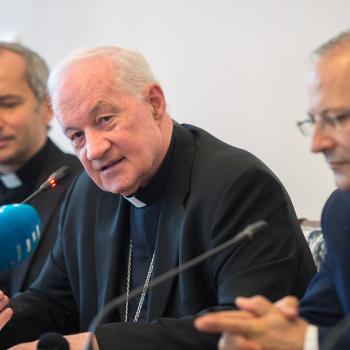
In a message to mark International Human Rights Day this past Sunday, the Justice and Peace Commissions of the European Churches have called for a “legally-binding international instrument to regulate the activities of transnational corporations and other enterprises in human rights laws”.
“Multinational companies have acquired in recent years considerable economic and also political power, which implies an increased responsibility“, alerts the continent-wide alliance of social justice organisations in the text. A responsibility that means “not only the civic obligations to pay taxes where profits are earned”, but also the “full respect for the entire body of human rights in all of its manifestations”.
To that end, the European Justice and Peace Conference – which defines itself on its website as an organization dedicated to “the promotion of justice, peace and respect for human dignity” – has thrown its support behind the efforts of the United Nations Human Rights Council, based in Geneva, to “complement and go beyond” the UN “Guiding Principles on Business and Human Rights”, a document published in 2011.
Specifically, Justicia et Pax Europa desires to see, in its own words, “that all companies… respect human rights”, and that they pay special attention both to “gaps linked to transnational activities” and to the “protection of human rights defenders”. Another goal it has is to see the UN ensure “special provisions for the activities of multinational companies in conflict-affected areas”. At the local European level, too, the Justice and Peace Commissions look forward to the full implementation on the continent of the recommendations contained in the “Business and Human Rights” document passed at a meeting of the Conference of INGOs of the Council of Europe in June this year.
To provide support for this call for “an internationally-binding treaty [which] may contribute to diminish and effectively abolish forms of abuse and disrespect for human rights in all sectors of the activities of multinational companies”, Justicia et Pax looks to encyclicals of Popes Benedict XVI and Francis. To Caritas in Veritate on the one hand, more specifically – with its criticism that multinationals “sometimes fail to respect the human rights of workers” (22) – and to Laudato si’, on the other, with its lament for the “damage” caused by multinationals that export solid waste and toxic liquids to developing countries “in ways they could never do at home in the country in which they raise their capital” (51).
Of course there are myriad more condemnations of the predatory behavior of multinational corporations in the Church’s magisterium. To go no further than Laudato si’, for instance – Francis’ letter on “care for our common home” – with its warning that “the control of water by large multinational businesses”, such as Suez, Veolia, Thames Water, RWE, or Bechtel, “may become a major source of conflict in this century” (31).
I draw attention to the call of Justice and Peace Europe, however, not for its theological prowess but for the hope it expresses. What if the UN could, in fact, agree on a legally-enforceable instrument that obliged multinationals to finally consider clean water as “a basic and universal human right” and not as “a commodity subject to the laws of the market” (cf. Laudato si’, 30)? This indeed is one front on which the Church must continue to fight the good fight.













